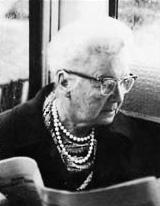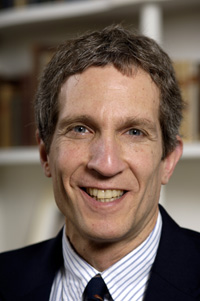 DULANY WHITING BALCH wished to give others the opportunity she did not have to pursue archaeological study and travel. Remembered as a remarkable woman by the numerous nieces, nephews, and offspring of acquaintances whose educations she financed, Mrs. Balch had a lifelong interest in archaeology and had hoped to participate in archaeological excavations. She gave up these plans to raise her deceased sister’s child and, later, to help rear her grandnieces. Nevertheless, Mrs. Balch took courses in archaeology and a range of other subjects at Hopkins throughout her life–studying for many years under David M. Robinson, an early Hopkins professor of classical archaeology, and making trips to Egyptian archaeological sites when time permitted.
DULANY WHITING BALCH wished to give others the opportunity she did not have to pursue archaeological study and travel. Remembered as a remarkable woman by the numerous nieces, nephews, and offspring of acquaintances whose educations she financed, Mrs. Balch had a lifelong interest in archaeology and had hoped to participate in archaeological excavations. She gave up these plans to raise her deceased sister’s child and, later, to help rear her grandnieces. Nevertheless, Mrs. Balch took courses in archaeology and a range of other subjects at Hopkins throughout her life–studying for many years under David M. Robinson, an early Hopkins professor of classical archaeology, and making trips to Egyptian archaeological sites when time permitted.
She saved for many years in order to make a substantial bequest to Hopkins in support of archaeological studies. At her death in 1988, Mrs. Balch’s estate created an endowment for archaeological studies that later was directed to establish this professorship. Her estate also provided support for onsite archaeological studies, benefiting faculty and students from the Department of Classics and the Department of Near Eastern Studies.
Several other members of the WHITING FAMILY have provided generous support to Johns Hopkins. The G.W.C. Whiting School of Engineering is named in memory of Mrs. Balch’s brother, George William Carlyle Whiting. Her sister-in-law, the late Margaret Whiting, provided funding for a professorship in civil engineering and made gifts to the School of Medicine and the hospital.
